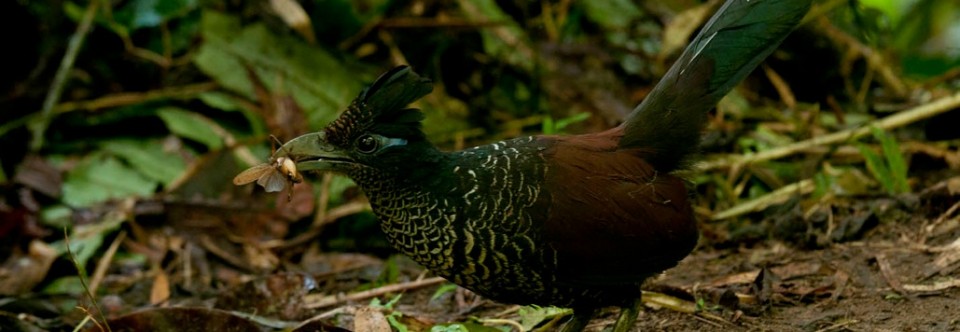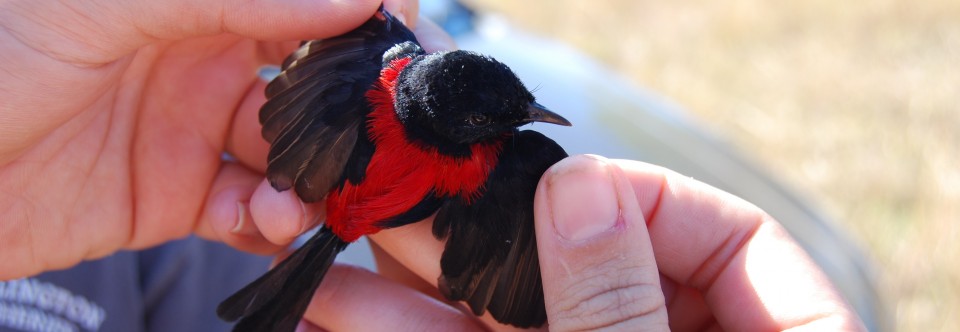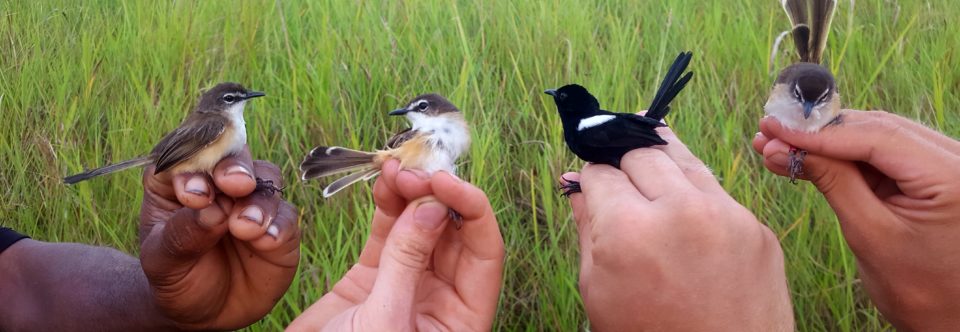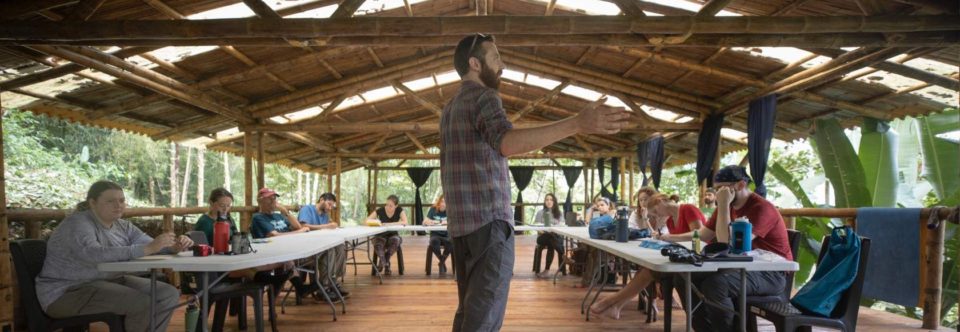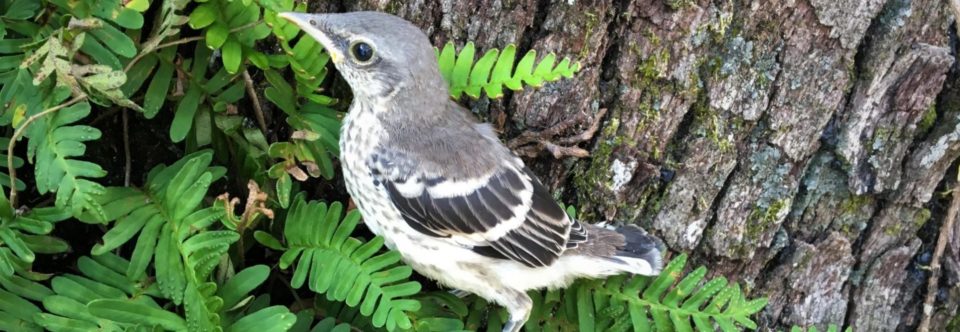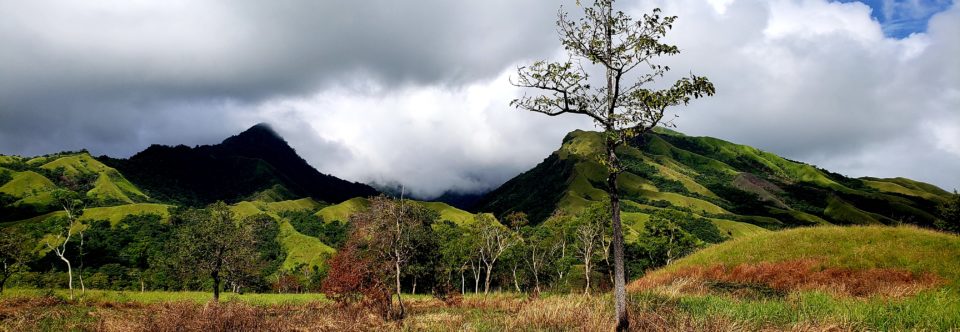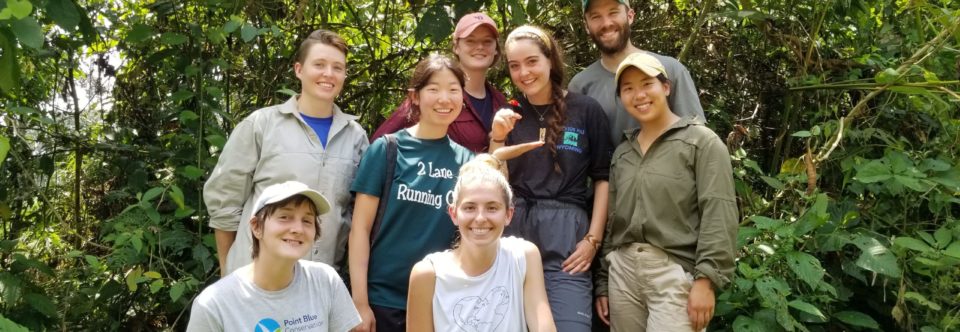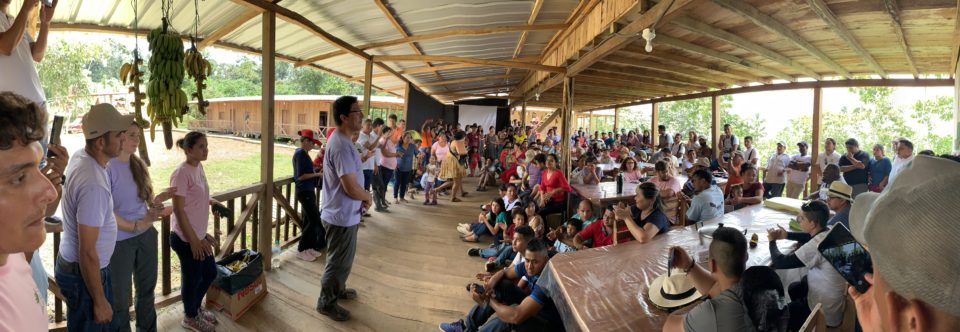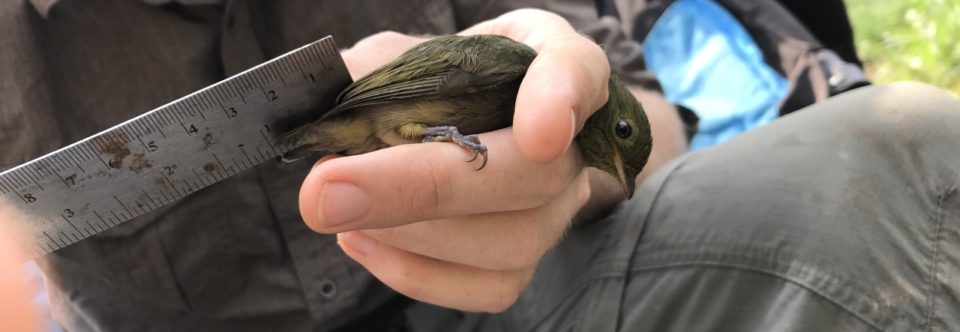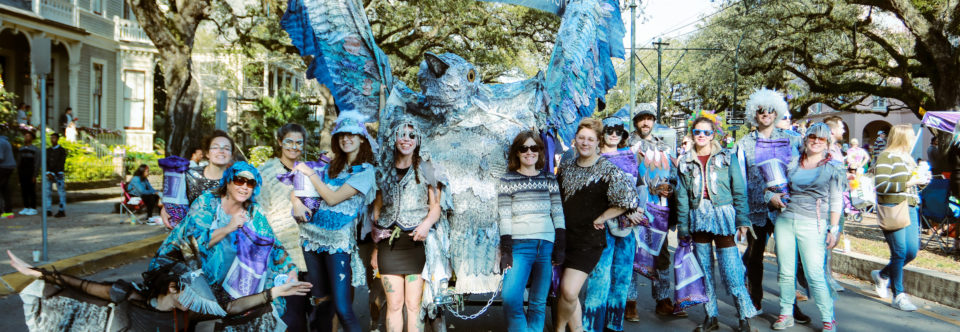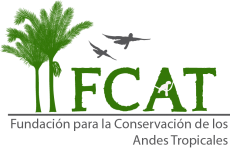"Welcome!"
Welcome! Our lab explores how the environment that organisms experience shapes their ecological, behavioral, evolutionary, and conservation trajectories. We focus our research on animal and plant and plant systems around the world, with active studies on plant-animal interactions, mating systems, demography and survival, signal evolution, movement and dispersal, and endangered species. Our lab takes a socially aware approach that combines community-engaged participatory research with capacity building, training, and education in the biodiversity hotspots where we work.
Fall 2018
The cold weather has arrived in New Orleans and to stay warm all members of the lab have been keeping busy!
This semester we welcomed Ph.D. students Annelise Blanchette and Mike Ellis to the lab! Annelise comes to us from John Carroll University in Cleveland, OH, where she earned her M.S. in biology. She will be working on mockingbirds here in New Orleans, with a focus on how environmental lead may impact behavior. She is happy to escape the cold winters of the north! Mike has come back to the states from Ecuador where he works as the Director of Research for Third Millennium Alliance, a conservation non-profit. His research will be based in Ecuador and focus on avian diversity in fragmented landscapes.
We also welcomed M.S. students Rachel Cook, Akhila Gopal, Jiawen Liu, and A.J. Pate and senior undergraduate Kyu Min Huh.
We are excited to have so many new faces in the lab, and for all of the exciting research ideas being pursued.
The returning members of the lab have been very busy the past couple of months.
Zoë Diaz-Martin is continuing to work on completing her lab work and data analysis related to adaptation and gene flow in a Neotropical palm tree, Oenocarpus bataua. She submitted her first chapter for publication and presented that work at the Ecological Society of America’s 2018 conference in New Orleans. Complementing her basic research, she continues to work on a community-based conservation initiative supporting local residents in creating an eco-tourism reserve at the Refugio del Gavilan in northwestern Ecuador.
John Jones returned from Papua New Guinea after successfully completing two different experiments as part of his dissertation. He is spending most of the fall semester writing grants to continue to fund his next steps in PNG as well as in Australia. John also co-authored a publication the effect of soil-based lead in New Orleans on northern mockingbird aggression.
Sarah Khalil successfully completed her second year, presenting her work linking circulating carotenoids to plumage phenotype at the American Ornithological Society (AOS) conferences in April. She was also awarded the AOS Hesse Research Award to support her work. This summer, she travelled back to her field site in Australia for her second field season, while concurrently leading this year’s crew of 6 NSF IRES undergraduates. While in Australia, she presented at the Queensland Ornithological Conference in June and at the national conferences for the Australian Society for the Study of Animal Behavior. She is now back in New Orleans, spending most of her time writing and mentoring students in the lab.
Kaushik Narasimhan had an exciting field season in Ecuador field testing GPS tracking devices. This semester he has pivoted from studying seed dispersal to focusing on the mechanisms behind survival advantage of rare genotypic individuals of neotropical tree species. He is gearing up for a big field season next semester to conduct an experiment testing for rare genotypic survival advantage across multiple species. He is also spearheading a frugivory camera trapping project, which is proceeding quickly and has resulted in two grants being awarded to undergraduate participants. He has two papers in review from his master’s research into Amazonian bat community ecology.
Jordan Karubian received grants from the Disney Conservation Fund for conservation work in Ecuador with FCAT, the lab’s partner in-country NGO, and from the RESTORE Center of Excellence program for work on brown pelican ecology with Paul Leberg. He has published new articles in New Phytolo gist (with lab alum Luke Browne, Browne and Karubian 2018), Behavioral Ecology (with lab alum Erik Enbody, Enbody et al. 2018); Molecular Ecology (one with lab alum Luke Browne, Browne and Karubian 2018 and Browne et al. 2018), Neotropical Ornithology (with honors student Michael Mahoney and other lab members, Mahoney et al. 2018), PLoS One (Rivero-de Aguilar et al. 2018), Austral Ecology (with NSF IRES undergraduate students, Sommer et al. 2018), and Science of the Total Environment (with Stephanie McClelland and lab members, McClelland et al. 2018).
Read MoreSpring 2018
Spring has sprung, and the lab has some exciting news – two of our Ph.D. candidates, Erik Enbody and Brock Geary, are about to fledge!
Erik Enbody is preparing to defend his dissertation in March 2018 and, following his defense, he will begin a postdoctoral research position in Dr. Leif Andersson’s lab at Uppsala University in Sweden. Since the last update, Erik coauthored a meta-analysis on extra pair paternity rates across Malurus fairywrens that was recently published in Molecular Ecology (Brouwer et al. 2017), submitted a manuscript, and has been working through a mountain of genomics data on white-shouldered fairywrens.
Brock Geary will defend his dissertation in April 2018, and following his defense, he will begin a postdoctoral research position in Dr. Paul Leberg’s lab at the University of Louisiana at Lafayette where he will continue his work on the foraging ecology of brown pelicans in the Gulf. Since the last update, Brock has submitted a manuscript and worked through thousands of GPS locations to map brown pelican foraging ecology in the Gulf of Mexico.
Zoë Diaz-Martin had a productive fall semester teaching the ecology lab and making progress with lab work. She also continued a conservation oriented project that bolsters local conservation efforts in northwest Ecuador. She looks forward to traveling this semester to Dr. Paul Gugger’s lab at the University of Maryland to begin her genomic work of Oenocarpus bataua.
John Jones spent most of fall indoors, revamping his dissertation project to focus now on behavioral endocrinology and multimodal signals in female white shouldered fairywrens. He is preparing to head back to Papua New Guinea in April for another field season. He also published the last golden-winged warbler paper to come out of his master’s study population in Wilson Journal of Ornithology (Tisdale and Jones et al. 2018), as well as collaborative paper on migratory connectivity in PNAS (Kramer et al. 2018) .
Sarah Khalil spent the past semester developing her thesis ideas, focusing on the evolution and mechanisms of carotenoid-based sexual signals. She travelled back to Brisbane, Australia for a quick trip in November to collect some more samples during the breeding season, and also presented preliminary results from her 2017 field season at the meeting for the Society of Integrative and Comparative Biology in January. She is preparing for her next field season to Australia in May to collect more data, as well as to lead the new cohort of NSF IRES undergraduate students.
Kaushik Narasimhan is on the verge of completing his first year in the PhD program at Tulane. He led a team of undergraduate students that gathered data on frugivory at palm trees from motion-activated camera traps, and is preparing for pilot fieldwork related to GPS tracking of umbrellabirds over the summer in Ecuador.
Jordan Karubian received a grant from the Morris Animal Foundation for research on how lead impacts mockingbird behavior, with collaborators Dr. Howard Mielke from the Tulane School of Medicine and Dr. Renata Ribeiro from Tulane’s Ecology and Evolutionary Biology Department. He has published new articles in Acta Oecologica (with lab alums Kym Ottewell and Luke Browne, Ottewell et al. 2017), Behavioural Processes (with lab alum Jenny Hazlehurst, in press), Journal of Tropical Ecology (with lab alums Scott Walter and Luke Browne, as well as members of our partner organization FCAT, Walter et al. 2017), Molecular Ecology (with Erik Enbody, Brouwer et al. 2017), and New Phytologist (with lab alum Luke Browne, accepted).
Read More
